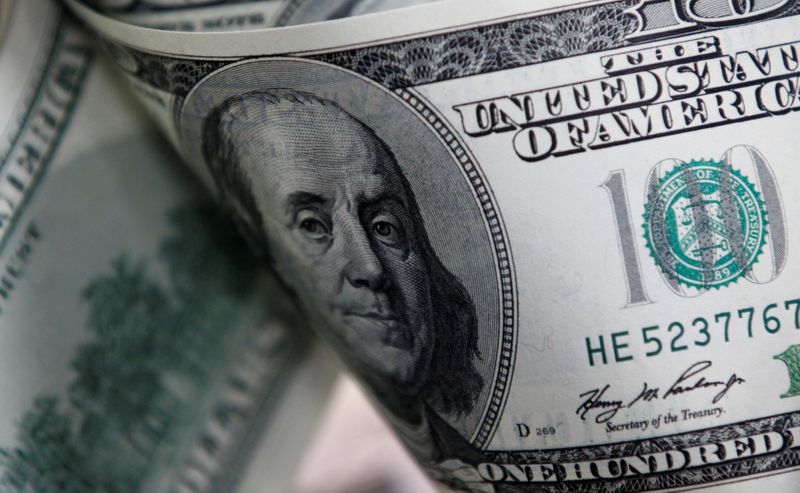By Hari Kishan
BENGALURU (Reuters) - The U.S. dollar, which has dominated currency market trading for the last two years, looks set to do so again in 2020, according to the latest Reuters poll of foreign exchange strategists.
While most of those who forecast spot FX rates are still clinging to a view that the euro may edge up slightly by the end of the year, when asked about the overall trend, few say the well-established dollar dominance is about to quickly fade.
Part of that stems from the recent flare-up in tensions between the United States and Iran, with investors piling into safe-haven assets such as the yen, which hit a three-month high on Wednesday. That has parallels with market behavior during bouts of worry about the U.S.-China trade war last year.
Despite repeated calls for a weaker dollar from analysts throughout last year, the greenback ended 2019 without losing any ground against most currencies. It is now expected to go on a winning streak for at least six months.
About 60% of analysts in the Jan 6-9 Reuters poll who answered an additional question - 32 of 57 - said the dollar will continue to dominate the market either from six to 12 months or for more than a year.
This time last year, over 60% of forecasters said the dollar's rally had already stalled.
"Your forecast is one thing and your conviction levels another, and I think you can hear my conviction levels are pretty weak," said John Hardy, head of FX strategy at Saxo Bank, citing the plunge in currency volatility late last year that left currency markets mostly rudderless.
"We all have to be a bit humble and see how this year shapes up."
However, with U.S. economic growth forecast to moderate this year and at the same time growth in other major economies expected to bottom out, the dollar could lose some of its shine.
"We're not telling investors to go out and buy euros. What we're telling investors is that the U.S. is converging back to Europe, there are tentative signs across the data set that Europe is stabilizing," said Jamie Fahy, global macro and asset allocation strategist at Citi.
"Broadly speaking, we're looking at the big picture theme of U.S. exceptionalism probably reversing."
In a sign of dollar fatigue setting in, speculators have cut back their bets in favor of the greenback to the lowest in two months, according to the latest data from the U.S. Commodity Futures Trading Commission.
But there is no clear consensus on which currency or currencies could take the dollar head-on.
Indeed, when analysts were asked which currencies were better poised to outperform the U.S. dollar this year, there was a near split among the poll respondents.
Twenty-seven of 62 chose emerging market currencies, while 22 opted for developed ones. The 13 others said no currency was likely to knock the dollar off its perch.
The euro, which has the potential to dent the dollar's strength, has fallen on hard times, losing nearly 7% over the past couple of years.
However, analysts still expect the common currency to gain about 2% to trade around $1.13 in six months and then end the year nearly 4% higher at $1.15. It was last changing hands around $1.11 on Thursday.
But much will depend on how euro zone economies perform.
"If the U.S. has to cut rates because it's under severe downward pressure in terms of growth and global growth is weak then it is harder to argue that the euro is going to see any material rebound," said Tim Riddell, macro strategist at Westpac.
Over two-thirds of analysts who answered a separate question said central bank policies and economic performance were likely to hold more sway on currency markets this year. The remaining ones chose safe-haven buying and/or political tensions.
That comes despite political tensions in recent years shoring up demand for safe-haven bets like dollar- and yen-denominated assets.
Broadly, the more liquid and volatile Japanese yen was forecast to strengthen around 3% by end-2020. The other popular safe-haven bet, the Swiss franc, was expected to rise by a touch less than 1% against the dollar in a year.
"Hopes for some reprieve from trade tensions reduced demand for safe haven assets into the final months of last year," said Jane Foley, head of FX strategy at Rabobank.
"Not only is this set to reverse in 2020 if China-U.S. relations sour again, but Iranian-U.S. tensions have already lifted demand for the yen on the spot market."

(Other stories from the global foreign exchange poll:)
(Polling by Tushar Goenka and Sumanto Mondal; Editing by Hugh Lawson)